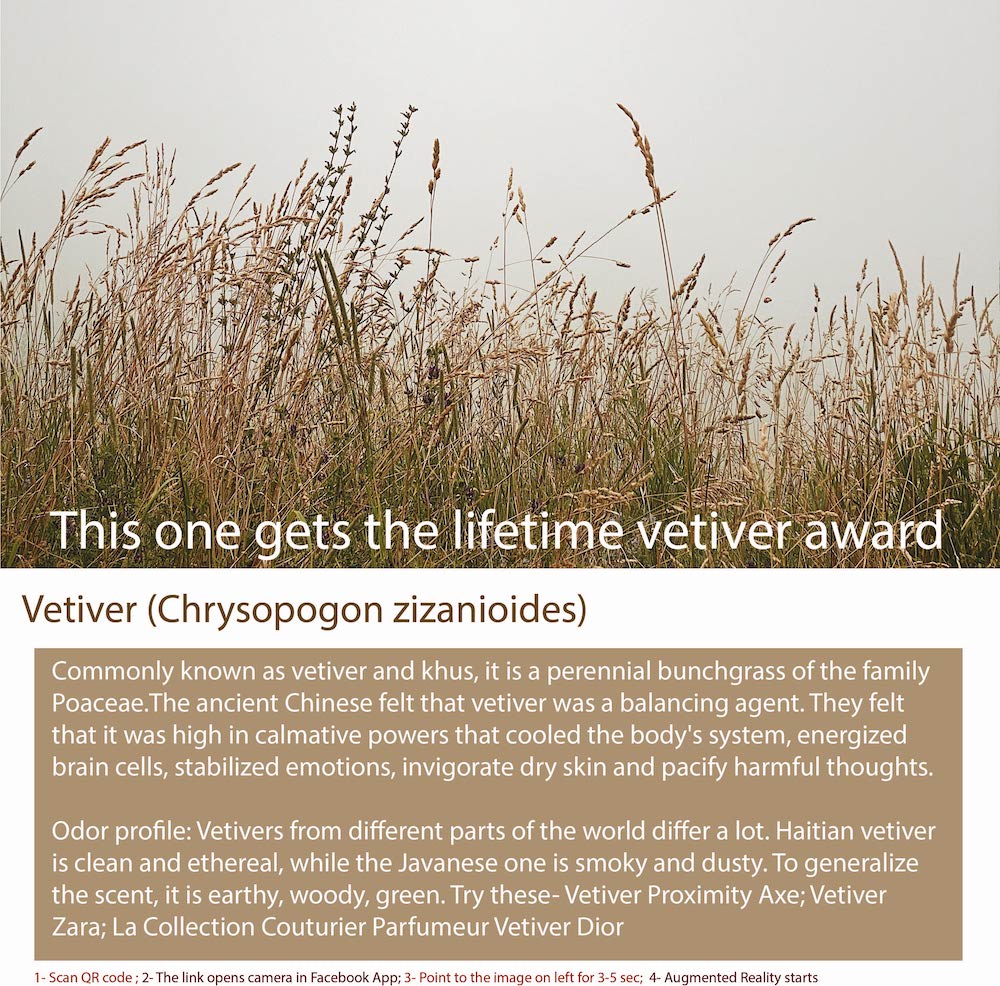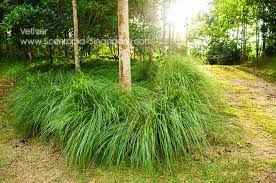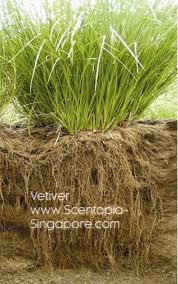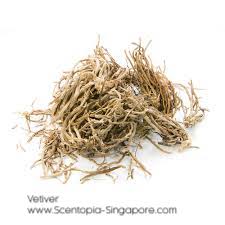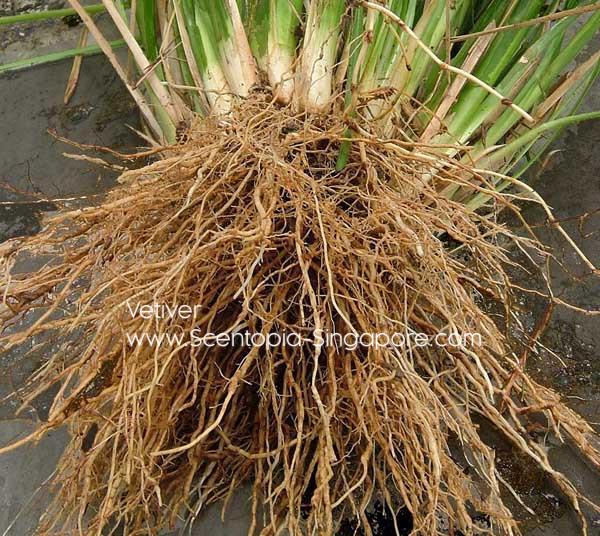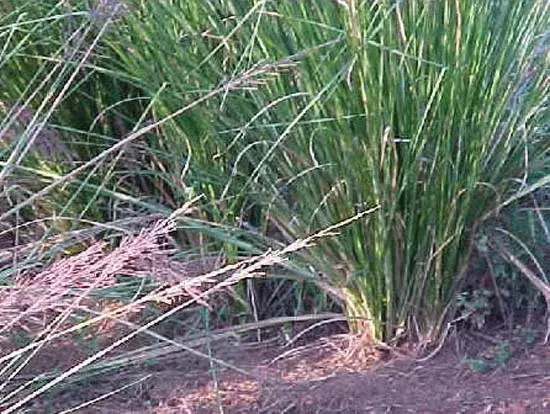Discover the Essence of Vetiver
Vetiver: The Earthy Elixir of Perfumes, Healing, and Fascinating Facts
Introduction: Vetiver, with its earthy and woody aroma, is an aromatic grass celebrated for its presence in perfumes, therapeutic oils, and traditional medicine. Scientifically known as Vetiveria zizanioides, vetiver is a perennial grass native to India and widely cultivated in tropical regions around the world. Vetiver has been cherished for centuries for its unique fragrance and potential healing properties. From inspiring perfumers with its earthy allure to offering potential health benefits in therapeutic oils and traditional medicine, vetiver is more than just a grass. This essay delves into the captivating world of vetiver, encompassing its presence in perfumes, therapeutic oils, medicinal systems, historical significance, and intriguing fun facts about this extraordinary and cherished grass.
Vetiver in Perfumes and Fragrance: Vetiver's earthy and woody fragrance has inspired perfumers to create scents that capture the essence of this delightful grass. Vetiver-inspired perfumes often evoke feelings of grounding, sensuality, and connection to nature.
Therapeutic Oils and Aromatherapy: Vetiver essential oil is used in aromatherapy for its potential benefits. Its aroma is believed to promote relaxation, reduce stress, and uplift the mood. Additionally, it is valued for its potential anti-inflammatory and skin-healing properties.
Traditional Medicine and Medicinal Uses: Vetiver has a long history of use in traditional medicine systems, particularly in Ayurveda and traditional Chinese medicine. It is believed to have potential benefits for skin health, nervous system support, and emotional well-being.
Culinary Applications and Food: Vetiver is not commonly used in culinary applications. However, in some cultures, the roots of vetiver have been used as a flavoring agent or to make refreshing beverages.
Historical Significance and Cultural Uses: Vetiver has been used historically for its fragrance and cooling properties. In India, vetiver roots were used to make fans and screens due to their cooling effect in hot climates. Vetiver mats and blinds were also popular for their refreshing scent and ability to repel insects.
Fun and Crazy Facts:
Vetiver, with its earthy allure and potential wellness benefits, is a cherished and versatile grass that continues to captivate and inspire with its unique fragrance and healing properties. From its presence in perfumes to its uses in aromatherapy and traditional medicine, vetiver offers a wealth of enjoyment and potential health benefits. As we savor the earthy aroma and explore its cultural significance and historical uses, we are reminded of the enduring appeal and natural charm of this extraordinary grass that has enriched our perfumery, healing practices, and living spaces with its grounding essence and therapeutic potential.
Introduction: Vetiver, with its earthy and woody aroma, is an aromatic grass celebrated for its presence in perfumes, therapeutic oils, and traditional medicine. Scientifically known as Vetiveria zizanioides, vetiver is a perennial grass native to India and widely cultivated in tropical regions around the world. Vetiver has been cherished for centuries for its unique fragrance and potential healing properties. From inspiring perfumers with its earthy allure to offering potential health benefits in therapeutic oils and traditional medicine, vetiver is more than just a grass. This essay delves into the captivating world of vetiver, encompassing its presence in perfumes, therapeutic oils, medicinal systems, historical significance, and intriguing fun facts about this extraordinary and cherished grass.
Vetiver in Perfumes and Fragrance: Vetiver's earthy and woody fragrance has inspired perfumers to create scents that capture the essence of this delightful grass. Vetiver-inspired perfumes often evoke feelings of grounding, sensuality, and connection to nature.
Therapeutic Oils and Aromatherapy: Vetiver essential oil is used in aromatherapy for its potential benefits. Its aroma is believed to promote relaxation, reduce stress, and uplift the mood. Additionally, it is valued for its potential anti-inflammatory and skin-healing properties.
Traditional Medicine and Medicinal Uses: Vetiver has a long history of use in traditional medicine systems, particularly in Ayurveda and traditional Chinese medicine. It is believed to have potential benefits for skin health, nervous system support, and emotional well-being.
Culinary Applications and Food: Vetiver is not commonly used in culinary applications. However, in some cultures, the roots of vetiver have been used as a flavoring agent or to make refreshing beverages.
Historical Significance and Cultural Uses: Vetiver has been used historically for its fragrance and cooling properties. In India, vetiver roots were used to make fans and screens due to their cooling effect in hot climates. Vetiver mats and blinds were also popular for their refreshing scent and ability to repel insects.
Fun and Crazy Facts:
- Vetiver's Deep Roots: Vetiver is known for its deep and extensive root system, which can extend up to 10-15 feet into the ground. This makes vetiver an excellent choice for erosion control and soil stabilization.
- Vetiver in Perfumery: Vetiver is a popular note in perfumery, and its aroma blends well with many other essential oils, creating complex and captivating fragrances.
- Vetiver and the Silk Road: Vetiver was one of the essential herbs traded along the ancient Silk Road, used for its fragrance and medicinal properties.
- Vetiver in Construction: In some regions, vetiver roots are used in construction materials, such as thatch and mats, due to their durability and resistance to pests.
- Vetiver as a Repellent: Vetiver essential oil is known to repel insects, making it a natural and eco-friendly alternative to chemical insect repellents.
Vetiver, with its earthy allure and potential wellness benefits, is a cherished and versatile grass that continues to captivate and inspire with its unique fragrance and healing properties. From its presence in perfumes to its uses in aromatherapy and traditional medicine, vetiver offers a wealth of enjoyment and potential health benefits. As we savor the earthy aroma and explore its cultural significance and historical uses, we are reminded of the enduring appeal and natural charm of this extraordinary grass that has enriched our perfumery, healing practices, and living spaces with its grounding essence and therapeutic potential.
To experience augmented reality, please open the Facebook-app using QR code and point to the image below
Unisex Fragrance Perfected by Scentopia Singapore
Vetiver is a tropical grass that is native to India and is widely cultivated in other countries, including Haiti, Java, and the Philippines. The plant is known for its thick, fibrous roots, which are used to extract an essential oil with a distinctive, earthy aroma.
Vetiver oil is used in perfumery, cosmetics, and aromatherapy, where it is valued for its grounding, calming, and soothing properties. It is also used in traditional medicine to treat a variety of ailments, such as anxiety, insomnia, and skin irritations.
In addition to its uses in fragrance and wellness products, vetiver is also used for its practical benefits. The strong, fibrous roots of the plant make it an excellent material for erosion control, and the plant is often used in agroforestry and sustainable agriculture practices.
In many cultures, vetiver is also used for its cultural and symbolic significance. For example, in India, vetiver is an important part of traditional Hindu wedding ceremonies, where it is used as a symbol of love and devotion. The roots of the plant are also used to make mats, baskets, and other woven goods, which are valued for their durability and beauty.
Vetiver oil is used in perfumery, cosmetics, and aromatherapy, where it is valued for its grounding, calming, and soothing properties. It is also used in traditional medicine to treat a variety of ailments, such as anxiety, insomnia, and skin irritations.
In addition to its uses in fragrance and wellness products, vetiver is also used for its practical benefits. The strong, fibrous roots of the plant make it an excellent material for erosion control, and the plant is often used in agroforestry and sustainable agriculture practices.
In many cultures, vetiver is also used for its cultural and symbolic significance. For example, in India, vetiver is an important part of traditional Hindu wedding ceremonies, where it is used as a symbol of love and devotion. The roots of the plant are also used to make mats, baskets, and other woven goods, which are valued for their durability and beauty.
Nature-Inspired Aromatic Essential Oils
Vetiver is a plant that has a long history of use in India and other tropical regions of the world. The roots of the plant have been used for centuries to extract an essential oil with a unique, earthy aroma, which is used in perfumery, cosmetics, and traditional medicine.
Vetiver is believed to have been used in India for at least 2,000 years and is mentioned in several ancient Hindu texts, including the Ayurvedic treatise the Charaka Samhita. In these texts, vetiver is described as a plant with cooling, grounding, and calming properties, and it is recommended for use in various medicinal and cosmetic preparations.
The use of vetiver oil in perfumery can be traced back to the 16th century, when it was used to make perfumes for the royal courts of Europe. During the 19th century, the popularity of vetiver oil in perfumery grew, and it became an important ingredient in many classic fragrances, including eau de colognes and aftershaves.
Today, vetiver is widely cultivated in tropical regions around the world and is used in a variety of products, including perfumes, soaps, candles, and skincare products. The unique, grounding aroma of vetiver has made it a popular ingredient in aromatherapy and fragrance, and it continues to be valued for its cultural, symbolic, and practical uses.
Vetiver is believed to have been used in India for at least 2,000 years and is mentioned in several ancient Hindu texts, including the Ayurvedic treatise the Charaka Samhita. In these texts, vetiver is described as a plant with cooling, grounding, and calming properties, and it is recommended for use in various medicinal and cosmetic preparations.
The use of vetiver oil in perfumery can be traced back to the 16th century, when it was used to make perfumes for the royal courts of Europe. During the 19th century, the popularity of vetiver oil in perfumery grew, and it became an important ingredient in many classic fragrances, including eau de colognes and aftershaves.
Today, vetiver is widely cultivated in tropical regions around the world and is used in a variety of products, including perfumes, soaps, candles, and skincare products. The unique, grounding aroma of vetiver has made it a popular ingredient in aromatherapy and fragrance, and it continues to be valued for its cultural, symbolic, and practical uses.
Experience the Freshness of Herbal Perfumes
Vetiver is not native to Singapore but is cultivated in the country for its oil, which is used in perfumery, cosmetics, and aromatherapy. The plant is well-suited to the tropical climate of Singapore and is grown in a variety of settings, including small-scale gardens, large-scale agricultural operations, and as a component of agroforestry systems.
In Singapore, vetiver oil is used in a variety of products, including perfumes, soaps, and candles, and is valued for its unique, grounding aroma. The oil is also used in traditional medicine and aromatherapy, where it is said to have calming, soothing, and grounding properties.
In addition to its uses in fragrance and wellness products, vetiver is also grown in Singapore for its practical benefits. The strong, fibrous roots of the plant make it an excellent material for erosion control, and it is often used in agroforestry and sustainable agriculture practices.
Overall, vetiver is an important crop in Singapore and is valued for its cultural, symbolic, and practical uses. The unique, grounding aroma of vetiver oil has made it a popular ingredient in perfumery, cosmetics, and aromatherapy, and it continues to be cultivated and used in the country.
In Singapore, vetiver oil is used in a variety of products, including perfumes, soaps, and candles, and is valued for its unique, grounding aroma. The oil is also used in traditional medicine and aromatherapy, where it is said to have calming, soothing, and grounding properties.
In addition to its uses in fragrance and wellness products, vetiver is also grown in Singapore for its practical benefits. The strong, fibrous roots of the plant make it an excellent material for erosion control, and it is often used in agroforestry and sustainable agriculture practices.
Overall, vetiver is an important crop in Singapore and is valued for its cultural, symbolic, and practical uses. The unique, grounding aroma of vetiver oil has made it a popular ingredient in perfumery, cosmetics, and aromatherapy, and it continues to be cultivated and used in the country.
The Science of Aromatics: Vetiver's Aromatic Profile
Vetiver fun facts:
- Vetiver is a hardy plant that can withstand harsh growing conditions and is resistant to pests and diseases.
- The roots of the plant can grow up to 10 feet deep, making it an excellent choice for erosion control and land stabilizationization.
- The essential oil extracted from the roots of the vetiver plant has a distinctive, earthy aroma that is often described as "smoky," "woody," or "spicy."
- Vetiver oil is used in perfumery to add depth and grounding to fragrances, and is a common ingredient in classic colognes, aftershaves, and men's fragrances.
- In traditional medicine, vetiver is used to treat a variety of ailments, including anxiety, insomnia, and skin irritations.
- Vetiver is an important part of traditional Hindu wedding ceremonies, where it is used as a symbol of love and devotion.
- The roots of the plant are also used to make mats, baskets, and other woven goods, which are valued for their durability and beauty.
- Vetiver oil is known for its calming, grounding, and soothing properties and is used in aromatherapy to promote relaxation and stress relief.
- Vetiver is widely cultivated in tropical regions around the world, including India, Haiti, Java, the Philippines, and other countries.
- The plant is also used in agroforestry and sustainable agriculture practices, as the deep roots of the plant help to maintain soil fertility and prevent soil erosion.
Herbal Fragrances for a Balanced Scent Experience
Vetiver is known for its distinct, earthy, and grounding aroma. The essential oil extracted from the roots of the vetiver plant has a unique scent profile that is often described as:
The essential oil of vetiver is composed of a complex mixture of aromatic compounds, including sesquiterpenes, alcohols, aldehydes, ketones, and esters. The main chemical constituents of vetiver oil are:
- Smoky: With a warm, smoky quality that is reminiscent of burning wood.
- Woody: With a rich, woody scent that is reminiscent of cedarwood, sandalwood, or patchouli.
- Earthy: With a deep, earthy aroma that is reminiscent of the forest floor.
- Spicy: With a subtle, spicy quality that is reminiscent of ginger or black pepper.
- Sweet: With a hint of sweetness that adds depth and balance to the overall aroma.
The essential oil of vetiver is composed of a complex mixture of aromatic compounds, including sesquiterpenes, alcohols, aldehydes, ketones, and esters. The main chemical constituents of vetiver oil are:
- Vetiverol: A sesquiterpene alcohol that gives vetiver oil its distinctive, smoky, and woody aroma.
- Isovalencenol: A sesquiterpene alcohol that adds a sweet, spicy, and balsamic note to the oil.
- β-Vetivone: A ketone that contributes to the earthy, spicy, and sweet aroma of vetiver oil.
- γ-Vetivone: A ketone that gives vetiver oil its warm, smoky, and woody aroma.
- Vetiverone: An ester that adds a floral note to the oil and balances the woody, smoky, and earthy notes.
Our Vetiver Collection: Scents for Every Occasion
Here is a list of popular vetiver-based perfumes:
- Guerlain Vetiver (1961)
- Tom Ford Grey Vetiver (2009)
- Creed Virgin Island Water (2007)
- Le Labo Santal 33 (2011)
- Diptyque Vetyverio (2019)
- Maison Martin Margiela REPLICA Beach Walk (2012)
- Frederic Malle Vetiver Extraordinaire (2003)
- Dior J'adore (1999)
- Hermès Terre d'Hermès (2006)
- Armani Code Profumo (2015)
Join Scentopia, Sentosa's latest tourist attraction wonderful orchid scent crafting, fragrance tour, bridal shower or corporate team building which includes perfume making onsite and offsite, beach activities and more. We also serve primary school learning journey, secondary students and pupil on industrial excursions. Know more about our orchids perfume bar or therapeutic orchid scents and other wellness aromas. Conatct Perfume workshop or book a scent crafting session here.

